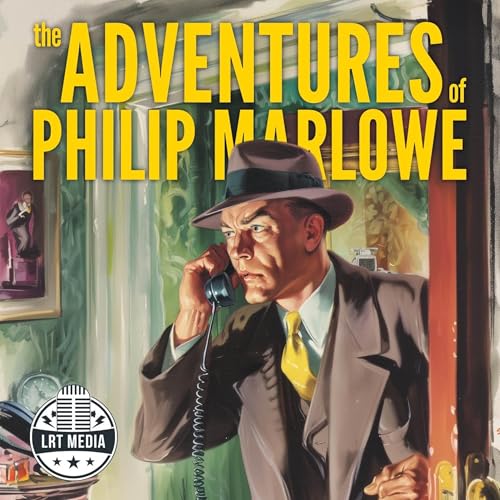Suspense, which aired on CBS Radio from 1942 to 1962, stands as perhaps the greatest achievement in radio drama and the undisputed master of the thriller genre during broadcasting's golden age. Created and produced by William Spier, who insisted on exceptional production values and superior scripts, Suspense earned its reputation as "radio's outstanding theatre of thrills" through meticulous attention to detail and an unwavering commitment to quality that attracted Hollywood's biggest stars to its microphones. The series featured an extraordinary roster of performers including Cary Grant, Orson Welles, Jimmy Stewart, Rita Hayworth, Vincent Price, Peter Lorre, Agnes Moorehead, and countless others who jumped at the chance to appear on the program.
Spier's innovative production methods, including keeping actors deliberately under-rehearsed to maintain tension and uncertainty, resulted in performances that crackled with nervous energy and authenticity. The show's signature opening, with its distinctive musical theme and the introduction by "The Man in Black," immediately established an atmosphere of impending doom and psychological unease. Unlike other mystery series that relied on detective work or supernatural elements, Suspense specialized in psychological terror, exploring the dark corners of human nature and the breaking points of ordinary people caught in extraordinary circumstances.
The series distinguished itself through its sophisticated storytelling and diverse source material, adapting works by master writers including John Dickson Carr, Cornell Woolrich, Dashiell Hammett, and Edgar Allan Poe, while also featuring original scripts by radio's finest writers. Episodes like "Sorry, Wrong Number" starring Agnes Moorehead became cultural touchstones, demonstrating radio's unique power to create intimate, claustrophobic terror through sound alone. Suspense excelled at stories of paranoia, guilt, and moral ambiguity, often featuring protagonists who were neither entirely innocent nor completely guilty, trapped in situations where their own actions or psychological weaknesses led to their downfall.
The show's production team, including composer Bernard Herrmann (who later scored Alfred Hitchcock's films) and sound effects artists who created some of radio's most memorable audio landscapes, elevated each episode into a carefully crafted work of art. With nearly 950 episodes produced over its twenty-year run, Suspense proved remarkably consistent in quality while constantly evolving to reflect changing social concerns and storytelling techniques. The series not only defined the radio thriller genre but also influenced film noir, television mysteries, and modern psychological thrillers, establishing narrative and atmospheric techniques that continue to influence entertainment media today.
When Suspense finally ended in September 1962, radio historians marked it as the end of the Golden Age of Radio, recognizing that no subsequent program could match its combination of star power, production excellence, and pure storytelling brilliance that made it the crown jewel of American broadcasting.
Hosted on Acast. See acast.com/privacy for more information.
 29 分
29 分 2025/11/1130 分
2025/11/1130 分 29 分
29 分 29 分
29 分 2025/11/0629 分
2025/11/0629 分 2025/11/0530 分
2025/11/0530 分 29 分
29 分 2025/11/0327 分
2025/11/0327 分
